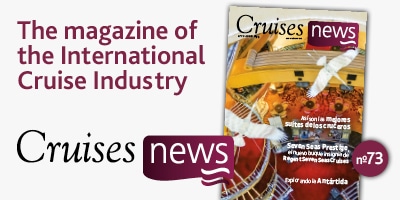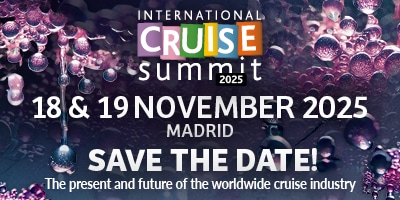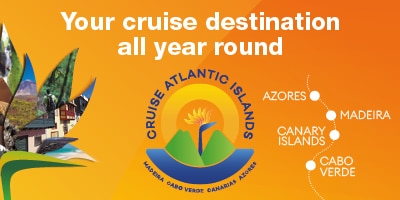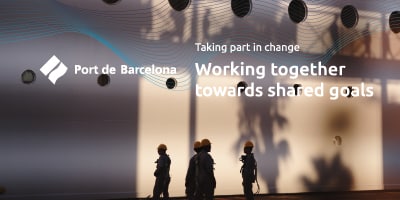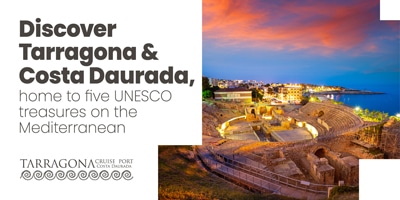Interview with Tom Boardley Secretary General of CLIA Europe
Tom Boardley is the Secretary General in Europe for Cruise Lines International Association (CLIA), the world’s largest cruise industry trade association, providing a unified voice and leading authority of the global cruise community.
Boardley is the Chairman of the Board of Trustees of the Mission to Seafarers, and is also a member of the UK Department for Transport’s Maritime 2050 Expert Panel. Previously, Tom was the President of the UK Chamber of Shipping (2015/2016) and served as Chairman of IACS (International Association of Classification Societies) for the 2012/2013 year.
Boardley is an engineering graduate of Oxford University and is a fellow of the Royal Institution of Naval Architects.

www.earthyphotography.co.uk
This image is protected by Copyright
In this moment of rapid growth and with the impact of the COVID19 crisis in the cruise industry, From the standpoint of CLIA Europe, what is the role of the various organizations and associations in the cruise sector at this critical moment?
The COVID-19 pandemic is an unprecedented global situation that has required an extraordinary response. As CLIA represents 95% of global cruise capacity, we are in the position to enable the industry to speak with one voice across the world, placing public health at the heart of our response.
Within 48 hours of the WHO (World Health Organisation) announcing a global public health emergency, CLIA member cruise lines had adopted enhanced screening protocols worldwide. These measures were constantly reviewed and escalated based on the guidelines of international health authorities. Upon declaration by the WHO of a pandemic, CLIA member cruise lines voluntarily suspended operations worldwide – making the cruise industry one of the first to do so.
In several of your conferences you have described the cruise passenger as “The Conscious Traveller”, since passengers are increasingly aware of the environmental impact when they are on vacation. How do you see this environmental challenge in CLIA Europe? Had you ever imagined this situation?
Travellers today want to know that they are choosing a sustainable vacation, and I am glad to say that cruise passengers can feel assured that our industry is leading the way when it comes to maritime environmental protection.
Worldwide, cruise lines have invested more than $22 billion in ships with new technologies and cleaner fuels to reduce air emissions and increase energy efficiencies – introducing technologies that did not exist even five years ago, such as shore-side power, LNG and exhaust gas cleaning systems. Of course, sustainable travel is about more than decarbonisation. For example, the extent of recycling on ships is often superior to that of many of the cities that the ships visit – some ships can repurpose 100% of waste generated aboard – removing, reusing, recycling and converting waste to energy. The ‘Conscious Traveller’ is here to stay, and the cruise industry has shown that it is more than capable of meeting the challenge.
One of the major complaints of the cruise industry is the multiplicity of environmental regulations in Europe. What is the role of associations like CLIA Europe to achieve a unified response?
During European Shipping Week in Brussels earlier this year, CLIA hosted a session on “Green Cruising”.
Shipowners, regulators, and NGOs all brought open minds to the discussion on how society can achieve its decarbonisation goals. There was a broad consensus that significant investment, time and collaboration will be needed if new environmental technologies are to be scaled up effectively and safely. There was also recognition that the public and private sector will need to work together if transformational change is to be achieved.
At CLIA Europe our role is to enhance understanding of our industry and to facilitate cooperation and partnership with regulators for the benefit of all. With respect to the EU Green Deal, we are well positioned to help EU decision-makers identify a roadmap towards a low carbon future while safeguarding the economic prospects for the next generation.
CLIA, in the coronavirus crisis, has overseen a unique occurrence in history: to completely and voluntarily stop a tourism sector, does CLIA have any figures yet on the economic impact of this decision? What will be the impact of the coronavirus crisis on the sector?
The cruise industry is a vital artery for world economies, contributing $150 billion to the world’s economy and supporting 1.2 million jobs. We know that for every 1% drop in cruising that occurs worldwide, up to 9,100 jobs can be lost and that each day of the global suspension results in the loss of 2,500 jobs. However, suspending operations was the right thing to do as the world works to address this challenge. The cruise community is resilient, and we will emerge stronger than before.
There is no cruise activity without port of calls. Ports and cruise lines are partners in the cruise business. But what is your opinion regarding the attitude of some countries and / or ports in refusing entry to cruise ships with passengers affected or not by with COVID-19?
This has been an unprecedented situation affecting the entire world. Throughout, the cruise industry has sought to do what is right for everyone affected. The voluntary suspension of operations worldwide was intended to help public health authorities and governments worldwide to contain the virus.
If you imagine that around 600,000 people were forecasted to sail each day this year, returning all ships to port has been an incredibly complex process to the say the least. We have been proud to play our part in an extraordinary global effort with teams of people working day and night to coordinate a safe return to port, working under the direction of governments and health authorities at every step.
Flight restrictions, port closures, and disembarkation restrictions have created challenges, but the cruise lines have remained focused on the health and safety of everyone involved. We welcomed the Guidelines issued last week by the European Commission on the protection of health and repatriation for seafarers and passengers on board ships. We believe that cooperation between national governments is essential to help persons of all nationalities to disembark and make their way home, and these Guidelines are an important step in the right direction.
Will there be an open wound between ports and cruise lines after the COVID 19 crisis?
On the contrary, I believe that in many cases our links will be stronger after the COVID-19 crisis. As countries were taking the decision to close their ports for precautionary reasons, we worked in partnership with local authorities, ports, and organisations such as Cruise Europe, to identify lay-up facilities and anchorage for returning cruise ships.
In my view, one of the outcomes of this experience will be a greater appreciation of the importance of collaboration to solve our common challenges in future.
The summer season in Europe has not yet started. What will be the impact of the coronavirus crisis during this period? Will Europe be the spearhead of the cruise industry recovery?
The cruise industry is vital to the European economy, generating €53 billion to the economy annually, supporting almost 215,000 direct jobs. In fact, of the 1.17 million jobs supported worldwide, nearly 40% are in Europe. Cruise activity supports travel agencies, airlines, and hotels, as well as a broad supply chain of industries that stretches across Europe. We know that for every 1% drop in cruising from Europe, up to 3,500 jobs can be lost.
The cruise industry is a European success story. Many thousands of people work in European shipyards perform highly technical work, contributing to national economies and strengthening the skills base for the future. I believe that these strong foundations will help fuel the economic and societal recovery in Europe.
Are passengers from other continents embarking in Europe going to have a good enough choice of air links to enjoy their cruise experience on the Old Continent?
Our community extends well beyond the cruise industry, including travel agencies, hotels, restaurants – and airlines. As we prepare to sail again, a strong community encompassing all these businesses will be important. However, we will focus our attention and our conversations on that issue when the time is right.
Do you think that the coincidence in time of the COVID 19 crisis and the huge number of new cruise ships being delivered will generate an oversupply? Will there be an overcapacity in the medium term?
The cruise lines have a wide range of deployment options at their disposal. So far, the demand for cruises has meant that the increase in cruise ship capacity, doubling since 2010, has always been filled. Without setting a timeline on recovery, I am confident that cruise will remain a very popular travel option.
You worked before at Lloyd’s Register and you know well the business of ship classification. Are there notations around comfort, environmental issues, etc.? Do you think it’s feasible to build a cruise ship better prepared for future pandemics such as COVID 19?
There are key learnings from this unprecedented situation that we will benefit from as we prepare to sail again – including protocols and practices that the industry put in place as the global crisis developed.
Does CLIA work with organizations such as the North American CDC, the British Public Health Department, etc. to prevent the spread of all kind of viruses and microbes on board?
Yes. Our industry has effectively taken responsibility for protecting public health on cruise ships for more than 50 years. In fact, we know of no other form of entertainment or travel that has the reporting requirements or screening protocols in place year in and year out outside a global health crisis.
The cruise industry is regulated by the International Maritime Organisation (IMO), flag state and port states, amongst others. Within Europe, the EU SHIPSAN Association, in collaboration with national public health bodies, performs regular inspections on all cruise ships based on the European Manual for Hygiene Standards and Communicable Disease Surveillance on passenger ships. In addition, all CLIA cruise line members must adhere to a stringent set of policies. CLIA and the cruise industry work collaboratively with the US Center for Disease Control and Prevention’s Vessel Sanitation Programme to implement comprehensive sanitation practices.
After the coronavirus crisis, what will the future of the cruise industry be?
COVID-19 is a global health crisis, not limited to any one company or industry, and should therefore be managed holistically with the best possible outcomes for all guiding our strategy for the future. For the cruise industry, there are learnings we will take from this unprecedented situation that we will all benefit from, as we prepare to sail again – including measures such as the enhanced protocols and practices that the industry put in place as the global crisis emerged.
Ours is a resilient community and we are confident that once we get through this, we will emerge stronger on the other side.


